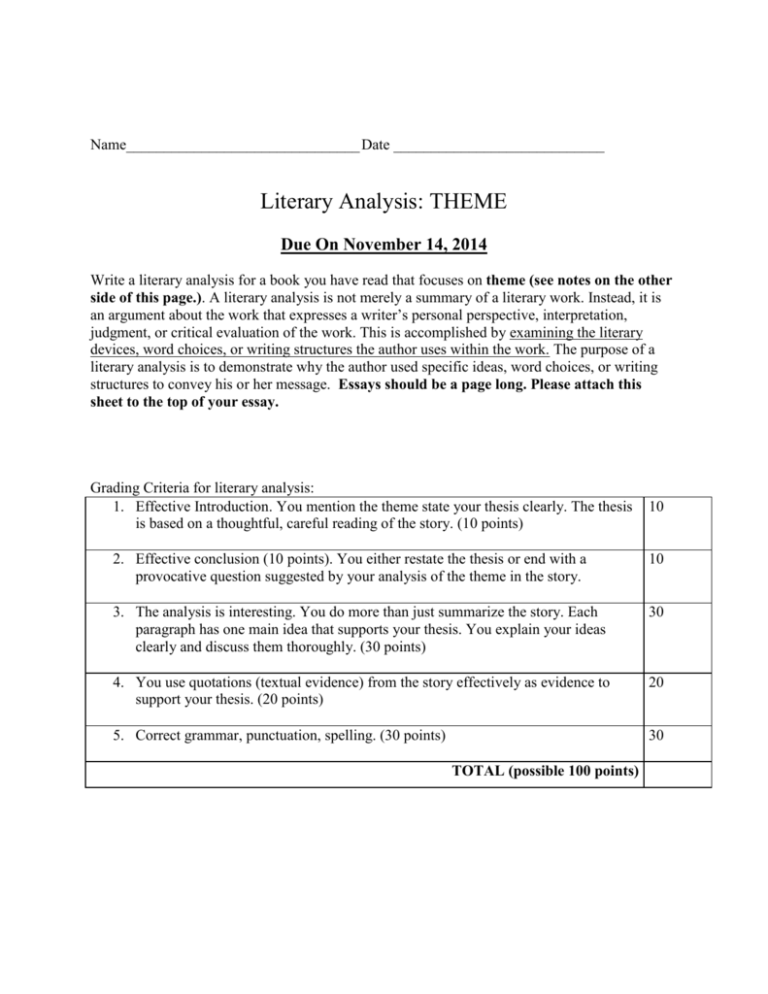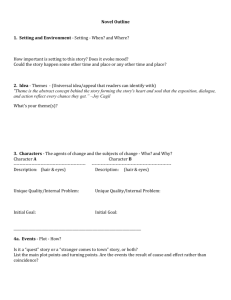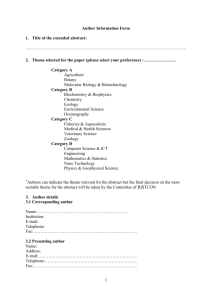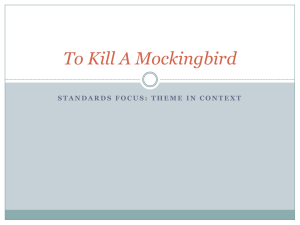Literary Analysis Theme Rubric
advertisement

Name_______________________________ Date ____________________________ Literary Analysis: THEME Due On November 14, 2014 Write a literary analysis for a book you have read that focuses on theme (see notes on the other side of this page.). A literary analysis is not merely a summary of a literary work. Instead, it is an argument about the work that expresses a writer’s personal perspective, interpretation, judgment, or critical evaluation of the work. This is accomplished by examining the literary devices, word choices, or writing structures the author uses within the work. The purpose of a literary analysis is to demonstrate why the author used specific ideas, word choices, or writing structures to convey his or her message. Essays should be a page long. Please attach this sheet to the top of your essay. Grading Criteria for literary analysis: 1. Effective Introduction. You mention the theme state your thesis clearly. The thesis is based on a thoughtful, careful reading of the story. (10 points) 10 2. Effective conclusion (10 points). You either restate the thesis or end with a provocative question suggested by your analysis of the theme in the story. 10 3. The analysis is interesting. You do more than just summarize the story. Each paragraph has one main idea that supports your thesis. You explain your ideas clearly and discuss them thoroughly. (30 points) 30 4. You use quotations (textual evidence) from the story effectively as evidence to support your thesis. (20 points) 20 5. Correct grammar, punctuation, spelling. (30 points) 30 TOTAL (possible 100 points) Theme What exactly is this elusive thing called theme? The theme of a fable is its moral. The theme of a parable is its teaching. The theme of a piece of fiction is its view about life and how people behave. In fiction, the theme is not intended to teach or preach. In fact, it is not presented directly at all. You extract it from the characters, action, and setting that make up the story. In other words, you must figure out the theme yourself. The writer's task is to communicate on a common ground with the reader. Although the particulars of your experience may be different from the details of the story, the general underlying truths behind the story may be just the connection that both you and the writer are seeking. Finding the Theme Here are some ways to uncover the theme in a story: Check out the title. Sometimes it tells you a lot about the theme. Notice repeating patterns and symbols. Sometimes these lead you to the theme. What allusions are made throughout the story? What are the details and particulars in the story? What greater meaning may they have? Remember that theme, plot, and structure are inseparable, all helping to inform and reflect back on each other. Also, be aware that a theme we determine from a story never completely explains the story. It is simply one of the elements that make up the whole.








